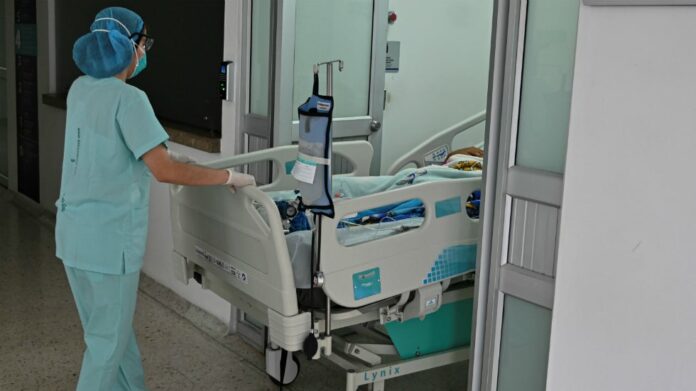The number of coronavirus patients in Minnesota needing intensive care beds reached a single-day high Monday, a spike officials said was expected.
Minnesota Health Department officials said patients needing ICU beds increased to 248 Monday. They also announced another 12 deaths, bringing the state total to 881. The previous single-day high for intensive care bed usage, 233, occurred Friday, with the number dipping again to 207 by Sunday.
“This is an expected trend,” Jennifer DeCubellis, CEO of Hennepin Healthcare, which oversees Hennepin County Medical Center (HCMC), told the Minneapolis Star-Tribune. “We anticipated that social distancing would allow health systems time to get space, staff, and supplies in place in order to be better prepared for higher volumes — but that the volumes would still increase, ideally at a slower and more manageable pace.”
The additional 41 ICU beds filled also marked a single-day increase for Minnesota since the pandemic began. The previous record for an increase was on May 16, when the number of beds in use increased by 25 to 225.
DeCubellis said HCMC had established an ICU surge area last week in anticipation of a spike.
“Our biggest pressure point is on the staff who are managing high acuity care, in higher volumes, and with longer lengths of stay,” she told the newspaper, saying staff remain “truly focused on the mission of caring for our community under all circumstances.”
About 87 percent of ICU beds in the Twin Cities metro area were full as of Monday, but Department of Health spokesman Scott Smith said there should be sufficient capacity to care for patients, noting that beds often reach 95 percent capacity during the flu season.
However, HCMC also has the state’s only emergency hyperbaric chamber and is the state’s largest Level 1 trauma hospital, forcing it to pull off a balancing act that makes staff and resources available for trauma care as well.
The state announced 745 new cases of the virus overall Monday, bringing the official count to 21,315.






